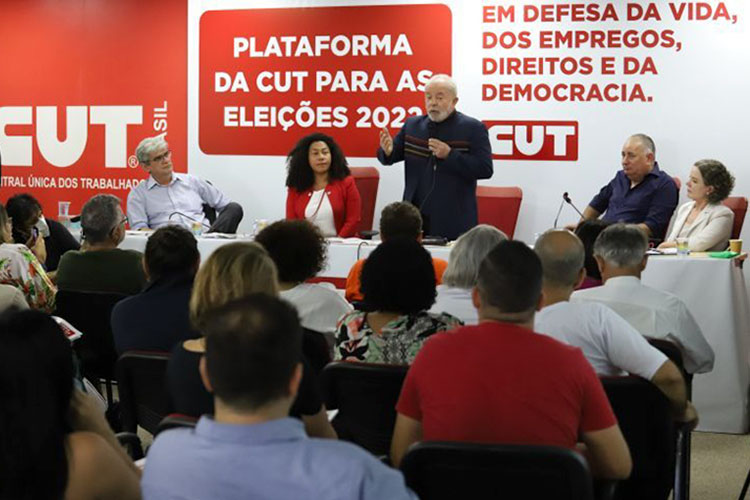Lula’s candidacy incorporated the demands of social and trade union movements for public policies that promote the resumption of sustainable development in Brazil. These are necessary to mitigate the economic, social and political destruction of recent years and the Brazilian state’s failure to uphold its international commitments, such as the 2030 Agenda and its Sustainable Development Goals (SDGs).
Immediately after the elections, a government transition team was formed. It set up several working groups that included the participation of civil society and social movements. These groups analysed the magnitude of the challenge ahead for Brazil and elaborated, with unprecedented speed and form, a series of proposals for the government’s plan.
Faced with the historic institutional vacuum left by Bolsonaro after his defeat, President Lula chose to mitigate this situation and take on the responsibility of governing before officially taking office. For example, he ensured Brazil’s participation in COP27. Once president, "Lula applied his approach of governance through popular participation and in his first days in office signed the creation of the Council for Social Participation (CPS), institutionalising the reopening of dialogue with social movements.
The role of the CUT
In the election period, the CUT Brazil publicly presented candidate Lula with the demands of the Brazilian working class compiled in a document entitled: "In Defence of Life, Work, Rights and Democracy". The document focused on the defence of life, decent work, rights, democracy, sustainable development, the fight against hunger, sovereignty, and the necessary construction of alternatives for the working class. The agenda also incorporated issues such as energy and just transition, water, sanitation, and transport.
In addition to having actively participated in many of the working groups that were established in the transition period to analyse the situation in Brazil and propose lines of action, the CUT is committed to participating and contributing in the PSC and other relevant spaces to bring working class perspectives to the construction of a democratic country that respects the rights of the working class.
For the CUT, it is key that Brazil resumes with the framework of the SDGs and strengthens the role of institutional bodies. In this sense, the retaking of the Ministries of Environment, Human Rights and Development, and Social Assistance, Family and Fight against Hunger were fundamental among the first measures taken by the government. In addition, the CUT welcomes the re-establishment of the Ministry of Agrarian Development and the formation of two new ministries: the Ministry of Racial Equality and the Ministry of Indigenous Peoples.
At the regional level, the CUT has highlighted Brazil’s return to its leadership role through an agenda of regional integration and development in spaces such as MERCOSUR, and the possible relaunching of the UNASUR project, as well as the creation of a Pan-Amazonian union.
Present obstacles
CUT Brazil is concerned about the increasingly strong influence of financial and market entities, which are capturing or undermining agendas such as just transition, and progressive proposals focused on sustainable development in Brazil. It is important to note that the composition of the broad front that allowed President Lula’s re-election also includes sectors of agribusiness and finance capital, whose objectives of turning nature into a commodity and promoting the privatisation of the state run in opposition to the objectives of the trade union movement and civil society.
This situation is and will present a challenge to finding a consensus between antagonistic actors as they try to decide on which future models of development and public policy to follow, and this is likely to make it difficult for significant progress to be made in the first years of government.
For more information
Daniel Gaio, national secretary for the environment at CUT Brasil
daniel[@]cut.org.br


